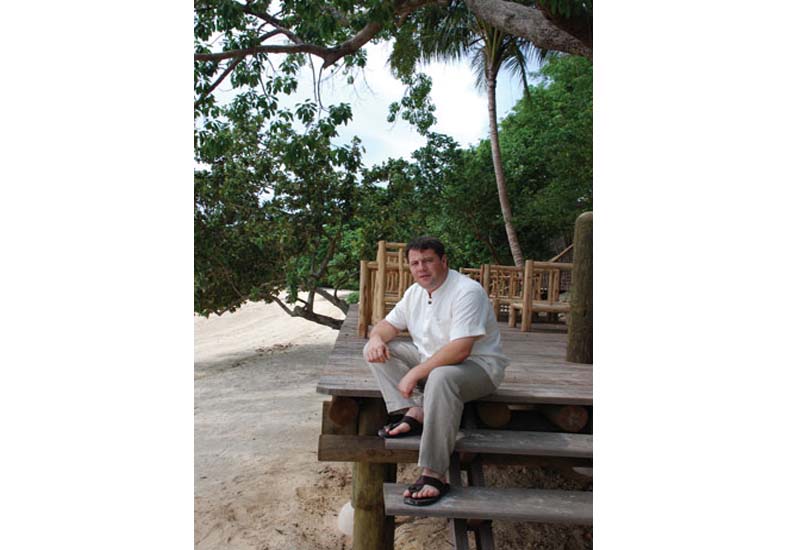Sourcing issues
Before Reynolds and his team can even think about creating spa cuisine dishes, the ingredients must be sourced and this is one of the biggest challenges, but sourcing certified organic producers isn't always the priority.
"If I go out to find a farmer, I ask if they use pesticides and growth enhancers. If he isn't certified I would rather go with him than fly food from overseas," Reynolds explains.
In addition, Reynolds ensures producers adhere to strict criteria and would rather that produce was local.
"We go to the local growers and the markets and see how things are packed sealed and 95% of our fresh produce is sourced locally," he says.
"Things like organic flour, which isn't grown here, we ship from Australia."
"I also source raw produce like seaweed from Singapore. I try to stick to one source country to reduce carbon emissions."
Reynolds says there are no raw produce companies in Thailand that can provide the ingredients he needs, such as agave nectar - a cactus plant used in the production of tequila.

Advertisement
"It has a low glycaemic index and it's used in raw foods as a sweetener, rather than sugar," he explains.
The aim at Six Senses Destination Spa is to grow 100% of the herbs and leaves on site and as many vegetables as possible.
The resort has adopted an edible landscaping theme throughout, which means that everything you see, you can eat.
This includes lemon grass, which has been planted close to the individual pool villas at the property as it doubles up as a mosquito repellent.
"At the moment we are growing crops in the nursery," says Reynolds.
"We have some organic produce, but at the moment, 85% of herbs are from two organic suppliers in Thailand."
Reynolds says that it's more difficult to grow all the fruit that is required, but points to a patch of pineapples that are currently being nurtured.
"We also have lime, nutmeg and bay trees," he adds.
"We make sure the plants don't get sprayed by chemicals and we use natural pesticides."
Ton-Sai
The resort's main restaurant, Ton-Sai, is where breakfast, lunch and dinner is served and adheres to strict spa cuisine principles.
"This means no cooking in oil," says Reynolds. "Instead, we use vegetable stock in a non-stick pan."
"There is nothing really wrong with cold-pressed oil in its natural state, but olive oil is the only oil that doesn't start to turn carcinogenic when it is heated. Most oils will start to turn at 60°C, whereas olive oil has a flash point of 170°C."
Despite the rigid spa cuisine stance that Ton-Sai champions, Reynolds is quick to stress that the resort's philosophy is "moderation, not starvation".
"We eliminate oil, refined and canned products and we cook the natural way - with gas and fire. We don't use microwaves," he explains.
"We use a minimal amount of sugar, but it's unprocessed, and we only use sea salt. With things like butter and oils, guests can have them cold and, rather than butter, we offer steamed garlic bulbs."
Reynolds has also devised a salt substitute - "a mélange of dried herbs and spices" that include oregano, cayenne and mace.
"I have made two versions - one Mediterranean-influenced and one Asian," says Reynolds.









 Search our database of more than 2,700 industry companies
Search our database of more than 2,700 industry companies









